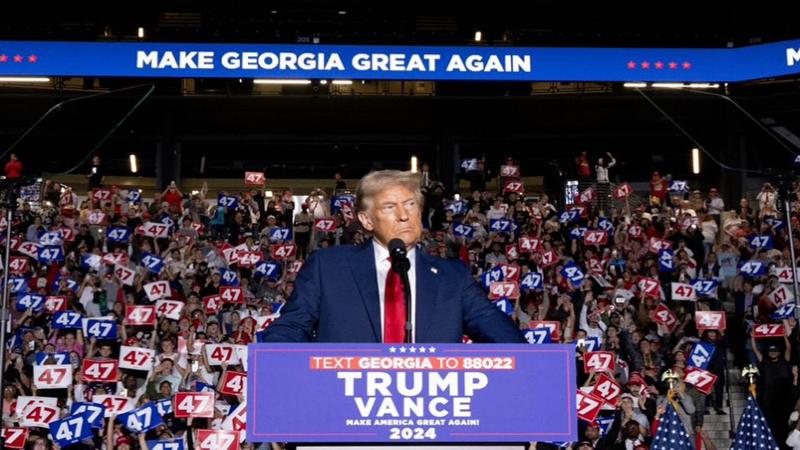U.S. voters are concerned that tariffs could hurt the U.S. economy, but the depth of those concerns varies by political party with more concern from Democrats than Republicans, according to a new poll.
A separate poll released earlier this month asked voters about tariffs in a different way: Do they support President-elect Donald Trump’s strategy of threatening steep tariffs on Canadian and Mexican goods to incentivize America’s neighbors to close their borders and stop the flow of illicit fentanyl into the U.S. A majority in that poll said yes.
Tariffs are taxes on imports or exports between countries.
Trump made raising tariffs on U.S. trading partners a key campaign issue. In the run-up to the November election, he suggested tariffs could fix many of the nation’s economic problems.
“Tariff,” Trump said many times, “is the most beautiful word in the dictionary.”
Voters aren’t as confident, according to a new Emerson College Polling national survey.
When it comes to additional tariffs on Canada, Mexico and China, a majority of voters think such tariffs will hurt the U.S. economy: 51% think additional tariffs on Canada will hurt the U.S. economy; 50% say the same of tariffs on Mexico, and 49% think additional tariffs on China will hurt the U.S. economy.
Some 39% of voters think tariffs on China will help the economy; 36% think tariffs on Mexico will help the economy; and 32% think tariffs on Canada will help the economy.
“Voter attitudes on tariffs are sharply divided by 2024 vote preferences,” said Spencer Kimball, executive director of Emerson College Polling. “Among Trump voters, 69% believe tariffs on China will help the economy, while 17% disagree. In contrast, 79% of Harris voters think China tariffs will hurt the economy, with 13% seeing them as beneficial.”
Trump said earlier this month that he cannot guarantee that his tariff plans will not raise prices for U.S. consumers. In an interview with Kristen Welker of “Meet the Press,” Trump dismissed warnings from economists that tariffs on Canada, Mexico, China and others would raise prices for American consumers. Welker asked Trump if he could guarantee American families wouldn’t face higher costs.
“I can’t guarantee anything,” Trump said. “I can’t guarantee tomorrow. But I can say that if you look at my – just pre-COVID, we had the greatest economy in the history of our country.”
Credit-rating agencies have said tariffs and higher taxes on imported goods could boost inflation and reduce U.S. economic output. Moody’s and S&P Global each issued advisories after the election. S&P reported that Trump’s proposed tariffs – a 10% across the board hike and up to 60% for China – could boost inflation by 1.8% and lower U.S. economic output by 1%, according to a post-election report.
The S&P report predicted inflation in the short term “with companies facing higher input costs (which they’d pass through to the degree they can) and consumers paying more for finished goods.” The report also suggested a medium-term drag on the U.S. Gross Domestic Product, a measure of economic output. According to the report, this could translate into income loss for U.S. households and loss of exports from trade retaliation.
But the earlier poll, from Napolitan News Service, found that 54% of voters support Trump’s approach of threatening tariffs as a strategy, compared to 31% who do not; 15% said they are unsure.
And the strategy appears to be working.
Canadian Prime Minister Justin Trudeau on Tuesday announced that Canada would look to spend an additional $913.05 million on border security efforts at its border with the U.S. over the next few years.







